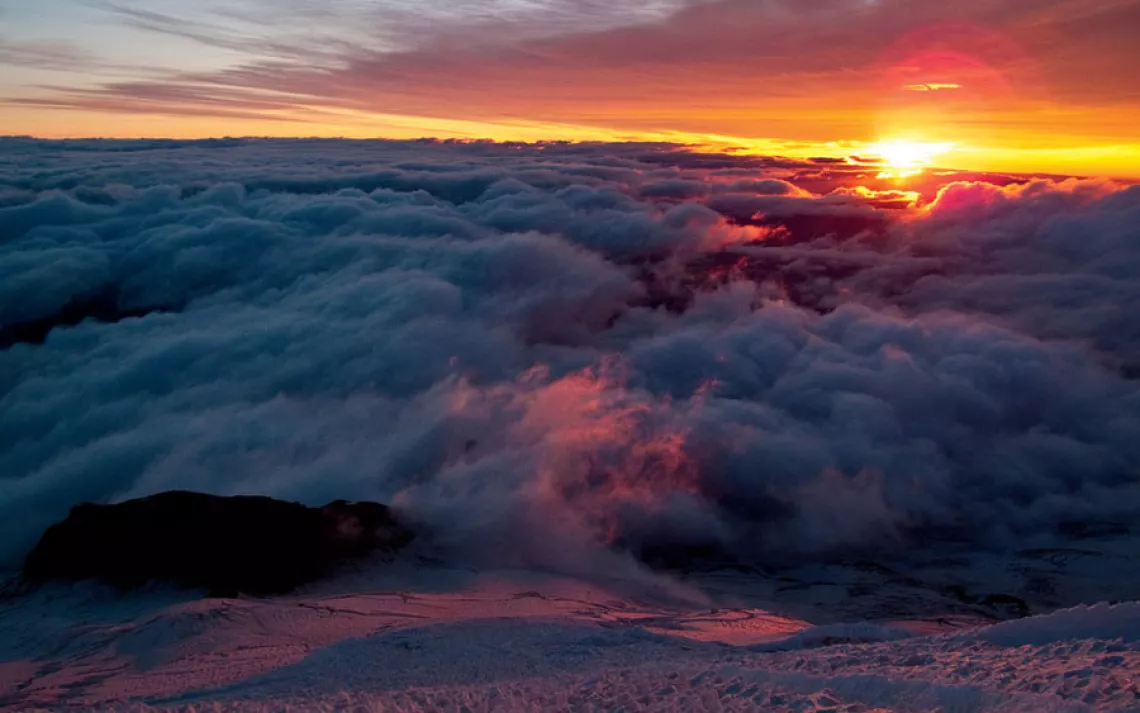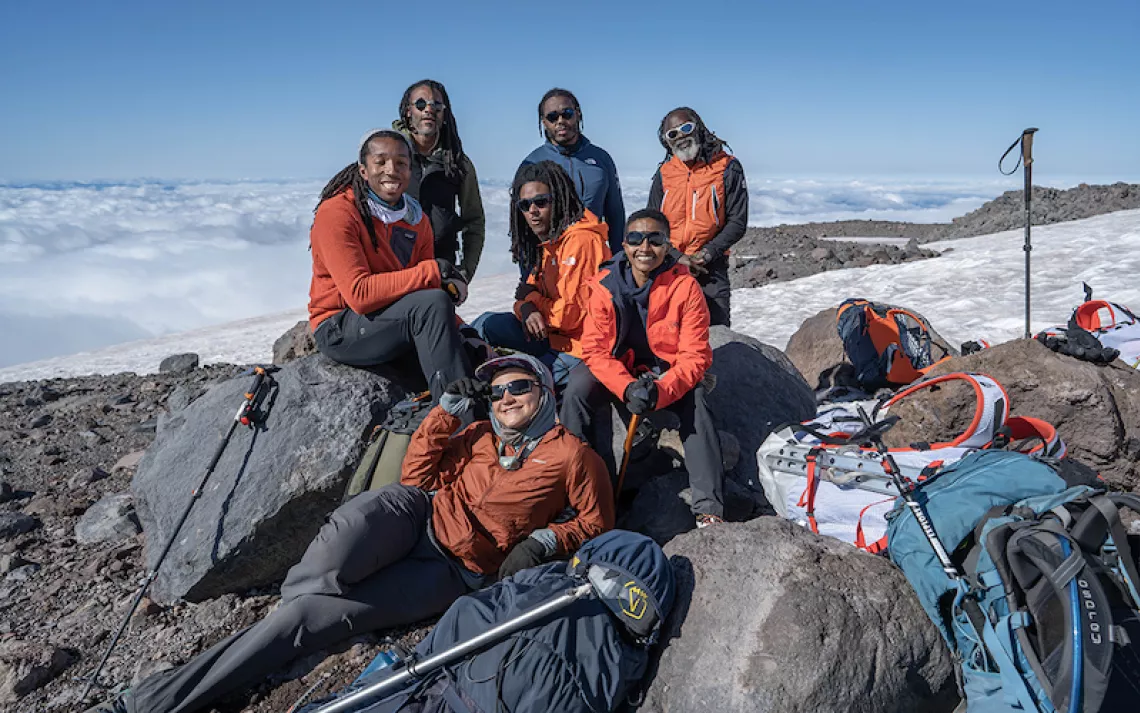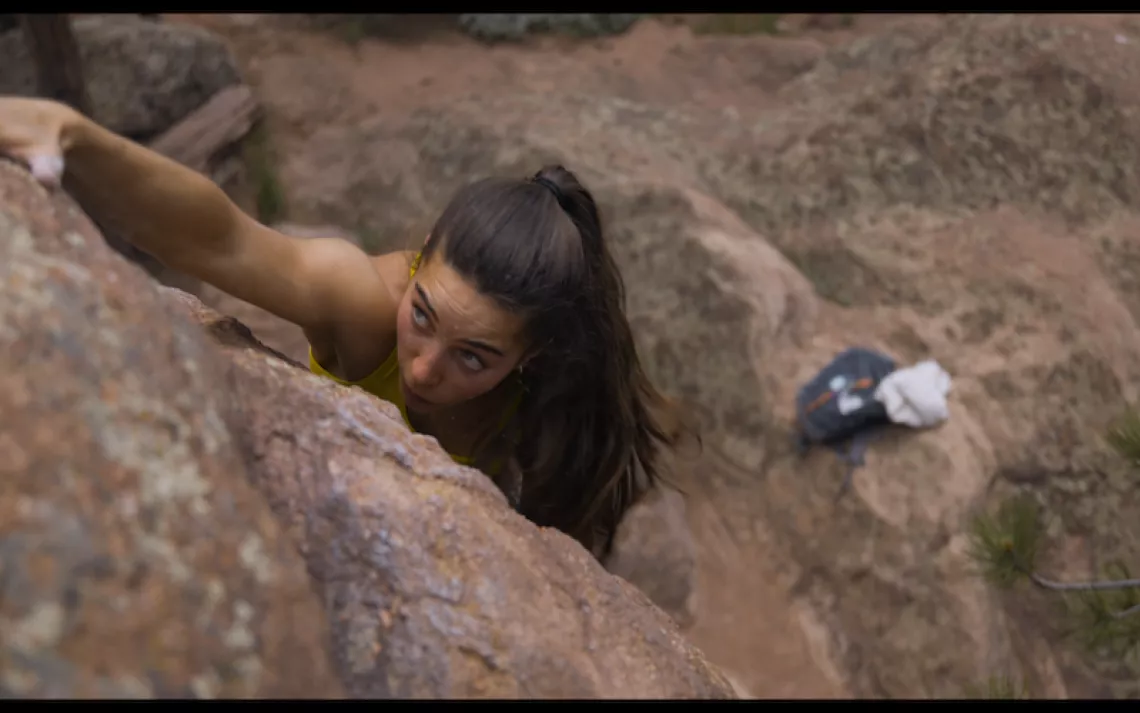Mt. Rainier, Washington

Somewhere above 12,000 feet on Mt. Rainier, the sun pops up between two cloud layers, and early-rising climbers can finally switch off their headlamps. | Photo by Timothy Faust/Altitude Stock
I stood on the high slope of Washington's Mt. Rainier, waiting for a descending group to pick up a man from our rope team who was still trying to convince us that he could breathe well enough to keep climbing upward.
The man was tall, slim, and wobbly. His head was curled down, and his hands were on his knees, which were collapsed into each other. "I can keep going. I'm fine," he was saying. He seemed to discard certain breaths and hold tight to others.
"It was the color of heaven. . . . I leaned toward it in a sort of ecstasy." -- Oliver Sacks
The guide on our rope team had told us that in the early days of climbing Mt. Rainier, they would anchor strugglers to the mountain in a sleeping bag and get them on the way back down. "You're lucky we have another guide to escort you," he said to the ailing man. "I don't think they make sleeping bags in your size!"
Soon the descending group arrived—a guide and two forlorn climbers, both red-faced and zinc-smeared, forced to turn back because their bodies couldn't take the altitude. After a few preparations, they and the tall man headed down.
Staring eastward, I took out a frozen candy bar and banged it against my hand. The dawn light shifted between pink and orange. I had never looked down at the sun like this. It wouldn't be a bad place to be anchored in a sleeping bag.
I thought about another story the guide had told, around one or two in the morning, when it was still black and cold: that the night before summit climbs, while everyone slept, he would sneak down to get a piece of cake from a cafe at the bottom. This was a lie he used to tame the mountain, but there was some comfort in these stories, in believing that a person could casually hike down a glacier in the dark for a piece of cake, or that someone might secure you to the side of a mountain that appeared to be growing out of the clouds, in position to imagine you were watching the sun rise over an icy, different earth.
 The Magazine of The Sierra Club
The Magazine of The Sierra Club







